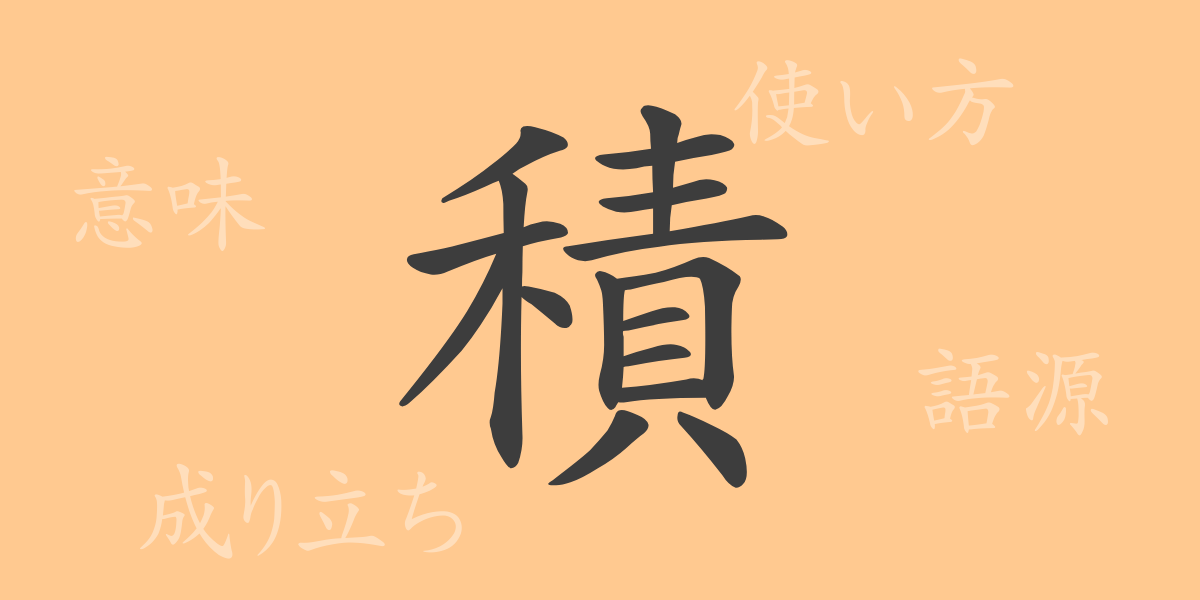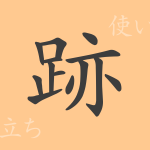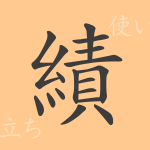The beauty of the Japanese language lies in its complexity and depth. This article delves into the common kanji “積” (せき), which is frequently used in everyday life and encapsulates many stories and meanings, symbolizing the richness of Japanese culture and language. We will uncover the origins, usage, and even idioms and proverbs related to “積”, exploring the full spectrum of this character’s significance.
Origins of 積 (せき)
The kanji “積” originated in ancient China and its design represents stacked grain. It evolved from the concept of piling up, extending to meanings associated with increasing quantity or number. Over time, “積” was adopted in Japan, where it developed uniquely and is now widely used in contemporary language.
Meaning and Usage of 積
“積” includes meanings like “to stack” and “to accumulate”, reflecting both the physical act of piling up and the metaphorical accumulation of experiences or efforts. For instance, the term “積極的” (せっきょくてき) signifies an attitude of actively building up or taking initiative in various contexts.
Readings, Stroke Count, and Radical of 積
The kanji “積” offers diverse readings and is an integral part of the Japanese language:
- Readings: The on’yomi (Sino-Japanese reading) is “セキ”, while the kun’yomi (native Japanese readings) are “つむ” and “つもる”.
- Stroke Count: “積” is comprised of 16 strokes.
- Radical: The radical for “積” is “禾” (のぎへん), which is associated with grain-related characters.
Phrases and Proverbs Using 積
There are numerous idioms, phrases, and proverbs that include “積”, each reflecting the kanji’s versatility:
- 積善の家には必ず余慶あり (せきぜんのいえにはかならずよけいあり) – “A household that accumulates good deeds will always experience lasting happiness,” emphasizing the benefits of virtuous actions.
- 積極的 (せっきょくてき) – Describes a proactive or positive approach towards activities.
- 積雪 (せきせつ) – Refers to accumulated snow.
- 積分 (せきぶん) – A mathematical term for integration, representing the sum over an interval in calculus.
Conclusion on 積
The kanji “積” illustrates the multifaceted nature of words, changing nuances depending on the context in which they are used. Commonly seen in various aspects of daily life, “積” represents physical stacking and the metaphorical accumulation of life experiences. This character deeply embodies the intricacies of the Japanese language, and this article aims to enhance your understanding of “積” and its rich cultural and linguistic significance.

























